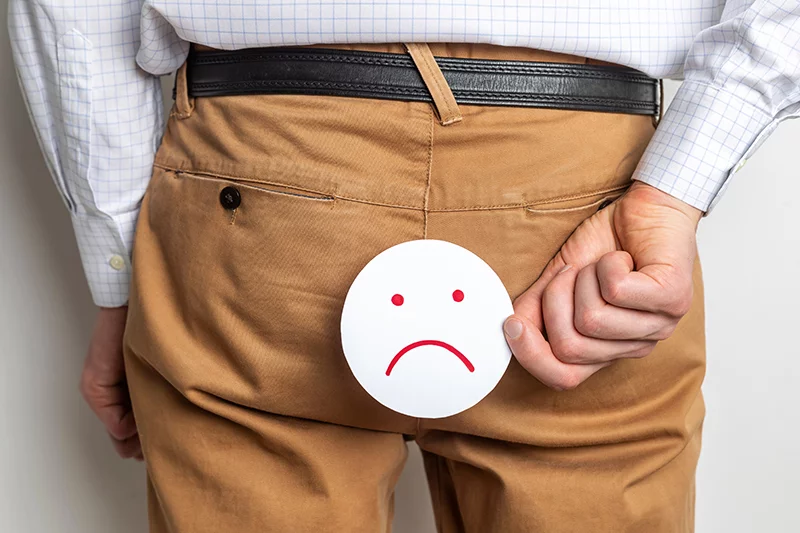
Hemorrhoids are enlarged veins in the anus or lower rectum that can bleed, itch, and be uncomfortable. They might be internal or external, and they’re frequently brought on by straining during bowel motions, persistent diarrhea or constipation, being pregnant, being obese, or just aging.
Why are they so painful?
Hemorrhoids can be painful due to the inflammation and swelling of the blood vessels in the anus or rectum. When hemorrhoids become enlarged, they can put pressure on the surrounding tissue and nerves, which can cause discomfort and pain. In some cases, hemorrhoids can become thrombosed, which means a blood clot has formed inside the hemorrhoid. This can cause significant pain and swelling in the affected area, making it difficult to sit, stand, or walk.
Can you die from them?
While hemorrhoids can be uncomfortable and painful, they usually do not pose a serious health risk. However, in rare cases, complications can occur. For example, a severe case of hemorrhoids can lead to anemia, which is a condition in which the body does not have enough red blood cells to carry oxygen to the tissues. Anemia can cause fatigue, weakness, and shortness of breath.
Can hemorrhoids pop or burst?
In rare cases, thrombosed hemorrhoids can burst or pop. This can occur when the blood clots inside the hemorrhoid become too large and cause the surrounding tissue to stretch and rupture. When this happens, it can cause bleeding and significant pain.
What makes them go away?
Maintaining healthy bowel habits, such as eating a high-fiber diet, drinking lots of water, and not straining during bowel movements, is crucial to preventing hemorrhoids from getting worse. Moreover, frequent activity and upholding a healthy weight can aid in preventing hemorrhoids from ever appearing.
When treating hemorrhoids the goal is softening the consistency of your bowel movements. In addition, there are suppositories and topical treatments that could help the hemorrhoids contract. Please seek medical assistance if you have rectal bleeding or notice blood in your stool as these symptoms could indicate more serious illnesses.


